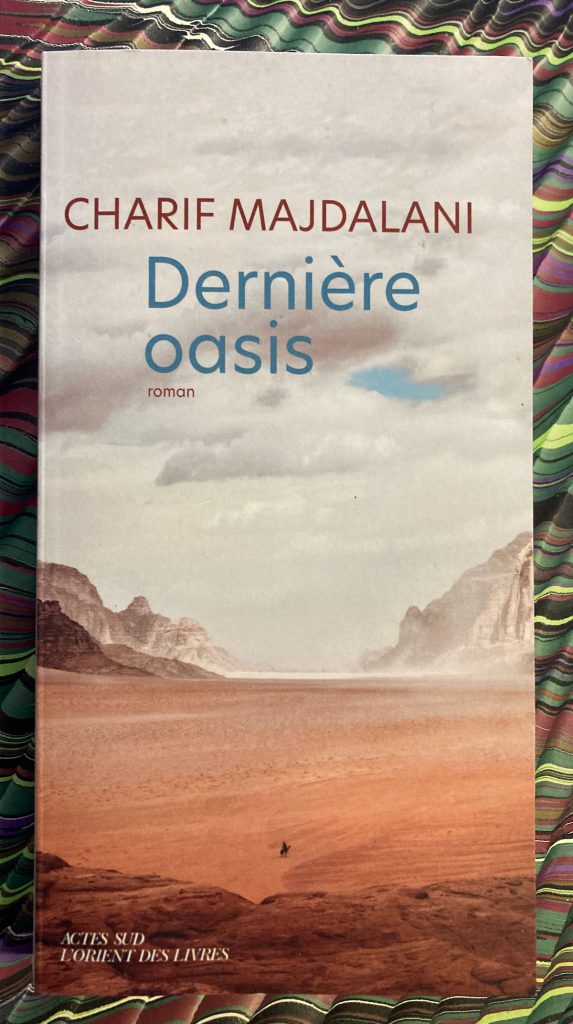
— Charif Majdalani. Dernière oasis. Roman. Actes Sud / L’Orient des livres, [2021].
Dernière oasis is an excellent novel of menace, in which a cosmopolitan art expert describes his descent into uncertain territory (somewhere northeast of Mosul, in the summer of 2014):
Le plaisir de la découverte des objets clandestins, mon déplacement jusqu’aux lieux où on me les dévoile et, après ça, l’aventure que représente leur rocambolesque transport, chaque fois suffisent à mon bonheur.
The setting is exotic, the prose is beautiful and musical, the pacing is deft, and things are just falling apart.
— — —
[A few days later]
Tout ce désert, c’est la faute des hommes qui ont gouverné la région, dit-il. Des irresponsables et des bandits.
And now, having experienced the full arc of the narrative arc of this very present and cosmopolitan novel (which encompasses old Lebanon, the fission of Iraq, the international art market, and the onset of the coronavirus), I remark upon how beautifully and precisely and evocatively Majdalani’s prose turns upon memory and place. There are many sly doublings of image and mood, intense conversations in unusual settings in this contemplative thriller. In his own head and with others, the narrator engages in a recurring discussion of history and its agents. Having since listened to a conversation between Gil Roth and Charif Majdalani when his earlier novel, Caravansérail (2007), appeared in English translation as Moving the Palace (New Vessel, 2017), it is clear that reflection upon historical decline is an important aspect of his work.
À chaque nouvelle catastrophique parvenant d’Irak ou de Syrie durant les années qui suivirent, ou de n’import quel coin de la planète en rapport avec les événements de cette région, j’ai resongé à l’affair du convoi du du général Ghadban et de son changement d’itinéraire, à cet embranchement, et à cette autre voie qui, si le convoi l’avait prise, aurait peut-être conduit non pas seulement Ghadban mais le monde entier ailleurs que là où ils ont été.
The reader shares the narrator’s experience of teetering at the edge of an abyss of time and incident. I am thinking about why, suddenly, in reading the opening passages of this novel, it was the mood of Ernst Jünger’s Auf den Marmor-Klippen (1939) which came up in memory (I am not going to re-read that one just now). Majdalani intimates, subtly and not with a sledge hammer, what we know in our hearts: that to be anywhere in the world — not only during the collapse of order in north Iraq in late summer 2014 — is to sense the increasing entropy of a closed system. And how beautifully the story is told.
I look forward to reading other books by Majdalani.
